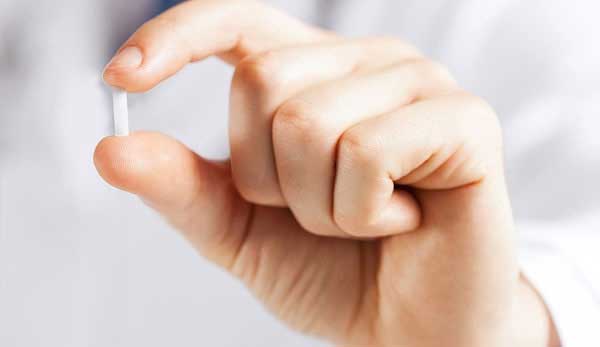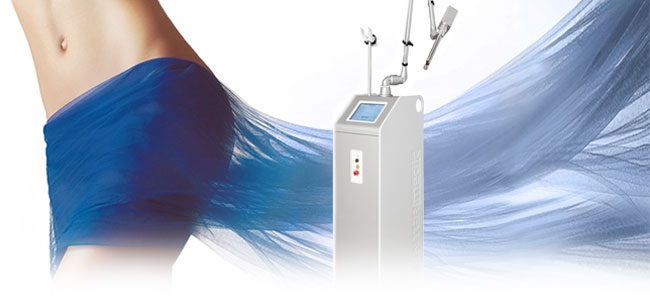Bioidentical hormones are currently the most effective and convenient hormone replacement therapy, and pose fewer risks. They are used to treat the effects of lowered hormone levels such as for example during menopause.
Pellets, subcutaneous hormones or the Youth Chip are only some of the more or less commercial names used in reference to these therapies. But they are much more than that.
Hormone replacement therapy involving bioidentical hormones is possibly the best available treatment for the symptoms and disorders that develop from the time of menopause.
It is also used to treat men. This kind of treatment is an effective way to compensate reductions in hormone levels that are also observed in men from a certain age, or as a consequence of different disease conditions.
It is undoubtedly one of the most concrete examples of preventive medicine. Such therapy seeks to allow patients to continue living without the accumulation of diseases.

What are bioidentical hormones?
Bioidentical hormones have an internal structure that is practically identical to that of the hormones produced by the human body - hence the name "bioidentical".
They are extracted from plants and are thus generally regarded as more natural hormones that are prepared for human use in the laboratory. The prepared hormones are presented in different formats to be used via different administration routes, with the subcutaneous route being the most common option.
These hormones act in the body imitating the functions of our own hormones, replacing the latter when their levels are no longer adequate, such as during menopause in women or hypoandrogenism in either sex.
In fact, this also applies to synthetic hormones - the difference being that these molecules are less similar to our own hormones. Although they are able to function as expected, synthetic hormones also have many other undesired effects that are not always controllable.
The other major difference is their method of use, which includes administration routes - mainly the subcutaneous route in the form of pellets - and doses that are adjusted on an individualized basis for each patient.
Who are they intended for?
Bioidentical hormones are intended for both women and men when their normal hormone levels decrease. This decrease is associated with many symptoms that worsen patient quality of life and increase the risk of developing diseases.
The most widely recognized situation is undoubtedly menopause, i.e., the time when women suffer a decrease in the concentration of estrogens that are produced by the ovaries which at this point cease to function - at an age of about 50 years on average.
In men, the decrease in testosterone produced by the testicles is more gradual and generally begins at around 40 years of age. The course is slower than in women, and this in most cases makes the condition less noticeable.
In both cases people experience the negative consequences of the decrease in hormone levels, with symptoms such as a lack of energy or diminished libido, among many other manifestations. In our society this is quite full accepted, and the recommended treatment option is basically adaptation.
This is the paradigm which bioidentical hormone replacement therapy seeks to change.

Benefits of bioidentical hormones
These hormones are the treatment for all those symptoms and disorders that result from a decrease or absence of certain hormones in the human body.
During menopause
- Increased energy sensation, less physical and mental tiredness, and improved general wellbeing
- Improved mood
- Improved sexual function and desire (libido)
- Reduction of vaginal atrophy and all its consequences, encompassed within the so-called genitourinary syndrome of menopause (link to vaginal laser?)
- Improvement of depression and anxiety
- Improved attention and cognitive capacity
- Improved memory
- Improvement of insomnia and better quality of sleep
- Reduction of the risk of osteoporosis and fractures
- Help in maintaining muscle mass and reducing fat mass
- Reduction of the risk of metabolic diseases
- Reduction of the risk of cardiovascular disease
- Slowing of the aging process, with a decrease in the risk of degenerative diseases
- Reduction of course of hot flashes during menopause, though this is not the most important issue
In men
- Increased energy sensation and less physical and mental tiredness
- Improved mood
- Improved libido and erectile function
- Improved bone density, which contributes to maintain body height
- Increase and maintenance of muscle mass and strength
Bioidentical hormones as they are currently used offer greater benefits in terms of health and quality of life than any other type of replacement therapy.
This is particularly due to the hormone that is predominantly used in this type of therapy, i.e., testosterone, which affords clear benefits in aspects such as mood state, energy, libido or muscle mass, and a decrease in fat mass, which are not observed with other hormones more commonly used in the more standard hormone therapies, such as estrogens.
Another major benefit is the administration route, fundamentally as subcutaneous pellets or tablets that are placed under the skin and maintain their therapeutic effect for months. Most of the standard hormone therapies require daily or at most weekly dosing - a fact that often causes patients to abandon the treatment.
Bioidentical hormones and preventive medicine
Beyond therapy designed to improve the symptoms and specific situations derived from hormone deficiency, bioidentical hormones constitute a very important reference in a medical field that is little practiced: preventive medicine.
Hormone deficiencies cause many more problems than simply hot flashes, insomnia or a lack of libido.
A reduction or the absence of hormones such as testosterone or estrogens ultimately results in relevant disease conditions that have a negative impact upon quality of life and accelerate aging.
Examples are:
- Metabolic syndrome
- Arterial hypertension
- Cardiovascular disease
- Arteriosclerosis
- Acute myocardial infarction and coronary disease
- Osteoporosis and fractures
Hormone replacement with bioidentical hormones:
- Improvement of the metabolic profile, lipid profile, muscle mass and the amount and distribution of body fat.
- The tendency to gain weight therefore decreases, and thus the amount of proinflammatory proteins that are synthesized in our fat mass also decreases.
- Improvement of the oxidation profile, with reduction of low grade inflammation, intimately related to the development of disease of any kind.
- Improvement of the lipid profile, which also reduces the risk of arteriosclerosis and thus of cardiovascular diseases and infarction.
- Increased bone mass, which contributes to prevent a very frequent degenerative disorder such as osteoporosis.
In view of the above, bioidentical hormone therapy may be regarded as one of the most important references in preventive medicine.
For these same reasons it is also one of the most important references in antiaging medicine.
Preguntas frecuentes
Related treatments

Annual gynaecological review
An annual gynaecological review is essential in order to know the sexual, reproductive and hormonal health condition of the patient.
We perform basic tests such as gynaecological and breast examinations, and other tests depending on each individual case.

Gynaecological CO2 laser
The scientific evidence clearly shows that the current laser of choice for gynaecological treatments is the CO2 laser.
Artemédica has one of the best available on the market: Gynelase.
Come to Artemédica, our gynecology center in Murcia.
Get information and make an appointment with the gynecologist for a check-up, or related diagnostic or therapeutic services.




